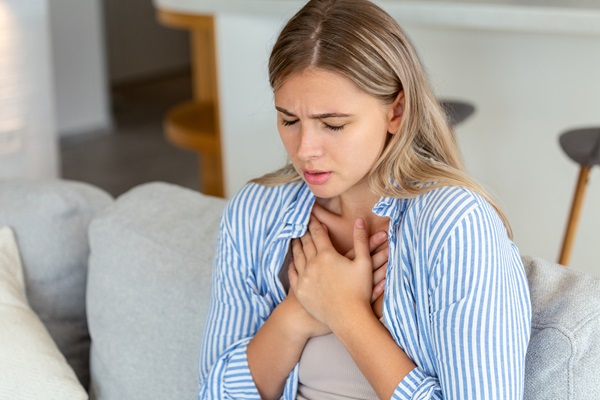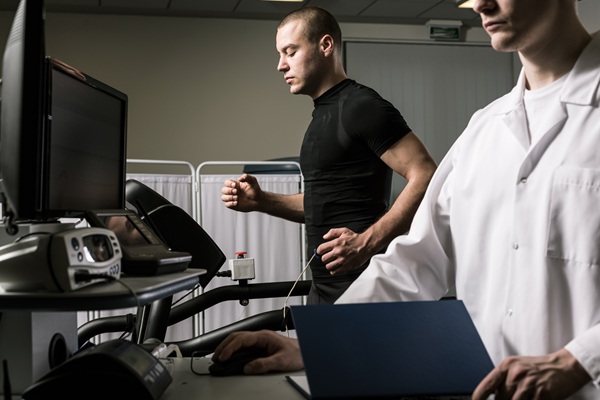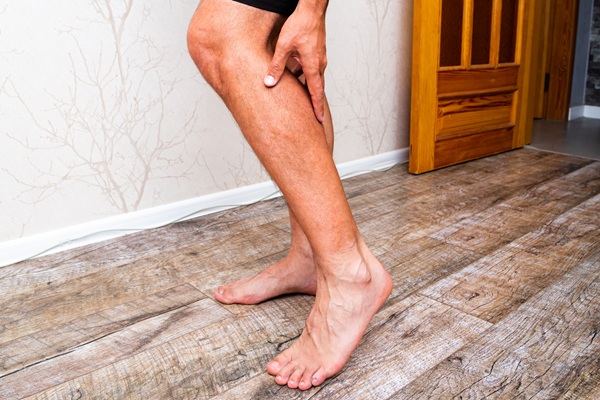Lifestyle Changes for Chest Pain Treatment

While chest pain may be uncomfortable, anxiety-inducing, and signal a more serious issue, a cardiologist can diagnose the source of the issue and provide treatment. This treatment plan will help patients manage this dull or sharp pain, often involving simple lifestyle changes that improve not only heart health but also one's overall sense of well-being.
Exercise, with a focus on cardio
Getting regular exercise can prevent a host of health problems. If chest pain is the issue, patients should place emphasis on cardio exercise to get their heart pumping, thereby improving heart health. The American Heart Association (AHA) recommends at least 150 minutes of moderate cardio a week or 75 minutes of vigorous cardio. Moderate exercise brings the heart rate up to between 50 and 70 percent of one’s maximum heart rate, while vigorous exercise reaches about 70 to 85 percent of that maximum.
Note that any exercise that increases heart rate can be considered cardio. Walking, hiking, dancing, swimming, roller skating, gardening, and even stretching are all cardio exercises. Patients who have trouble sticking to a routine are encouraged to try out a type of cardio that they find enjoyable.
Manage stress wherever possible
Stress negatively impacts heart health, as well as general health. A cardiologist may recommend various stress management techniques, such as journaling, meditation, or mindfulness. Even spending time with loved ones each week may reduce stress. Talk to a cardiologist for personalized tips on reducing stress in daily life.
Limit alcohol and avoid tobacco
Alcohol and tobacco are known to increase heart rate. Furthermore, the regular consumption of alcohol can weaken the heart muscle over time. The most effective way to reduce these risks is to stop using tobacco and limit alcohol. A cardiologist can provide tips for patients who want to quit either of these substances.
Eat a nutritious, heart-healthy diet
What you eat greatly impacts your heart health. Eating red and processed meats, high-fat dairy products, and high-sodium foods can lead to high blood cholesterol and pressure, making the heart work harder than it should. Instead, opt for a diet comprising fruits, vegetables, whole grains, lean meats, and seafood.
Reduce caffeine consumption
There is a lot of debate about whether coffee is good for the heart. The AHA recommends limiting caffeine intake to a moderate amount. For most adults, the Food and Drug Administration (FDA) defines “moderate” as about four to five cups of coffee daily. Some people find their limit is much less than four, however.
Know when to see a cardiologist
Lifestyle changes are crucial to improving heart health. That said, knowing when a patient should consult a cardiologist for additional help is important. For example, seeing a cardiologist about high blood cholesterol, high blood pressure, and frequent chest pain is a good idea.
If the patient is experiencing chest pain and other symptoms of a heart attack, do not wait to see a cardiologist. Instead, call 911 or visit an emergency room immediately. A cardiologist can help once the medical emergency is resolved.
Improve heart health through chest pain treatment
Chest pain treatment starts at home. A cardiologist can, however, develop a treatment plan tailored to you to improve your heart health for the long term. Call our Boynton Beach office today to get started with an appointment.
Request an appointment here: https://boyntonbeach.floridapremiercardio.com or call Florida Premier Cardiology at (561) 229-1411 for an appointment in our Boynton Beach office.
Check out what others are saying about our services on Yelp: Chest Pain in Boynton Beach, FL.
Recent Posts
A cardiac stress test is a diagnostic tool to evaluate how well the heart performs under physical stress. Cardiologists use this test to detect underlying cardiovascular conditions, monitor treatment progress, or assess the risk of future heart complications. Cardiac stress tests are essential in the early detection and management of heart disease.A cardiac stress test…
Peripheral arterial disease affects blood flow in the arteries, most commonly in the legs. It develops due to plaque buildup in the arteries that causes them to narrow and restrict circulation, possibly leading to discomfort, difficulty walking, and other serious complications. Recognizing the symptoms early and exploring treatment options can help improve the quality of…
Receiving cardiovascular treatment is a critical step in managing heart health, but recovery and long-term are equally vital to ensure long-term wellness. Whether the treatment involves medication management, interventional procedures, or surgery, maintaining a relationship with the cardiologist and following their recovery guidelines is crucial. A structured follow-up plan allows patients to maintain the benefits…
An echocardiogram is a common and painless test that helps doctors evaluate heart health. This test uses sound waves to create images of the heart, allowing cardiologists to examine its structure and function. Many people feel nervous before a medical test, but understanding what to expect can help reduce stress.An echocardiogram is a diagnostic test…


